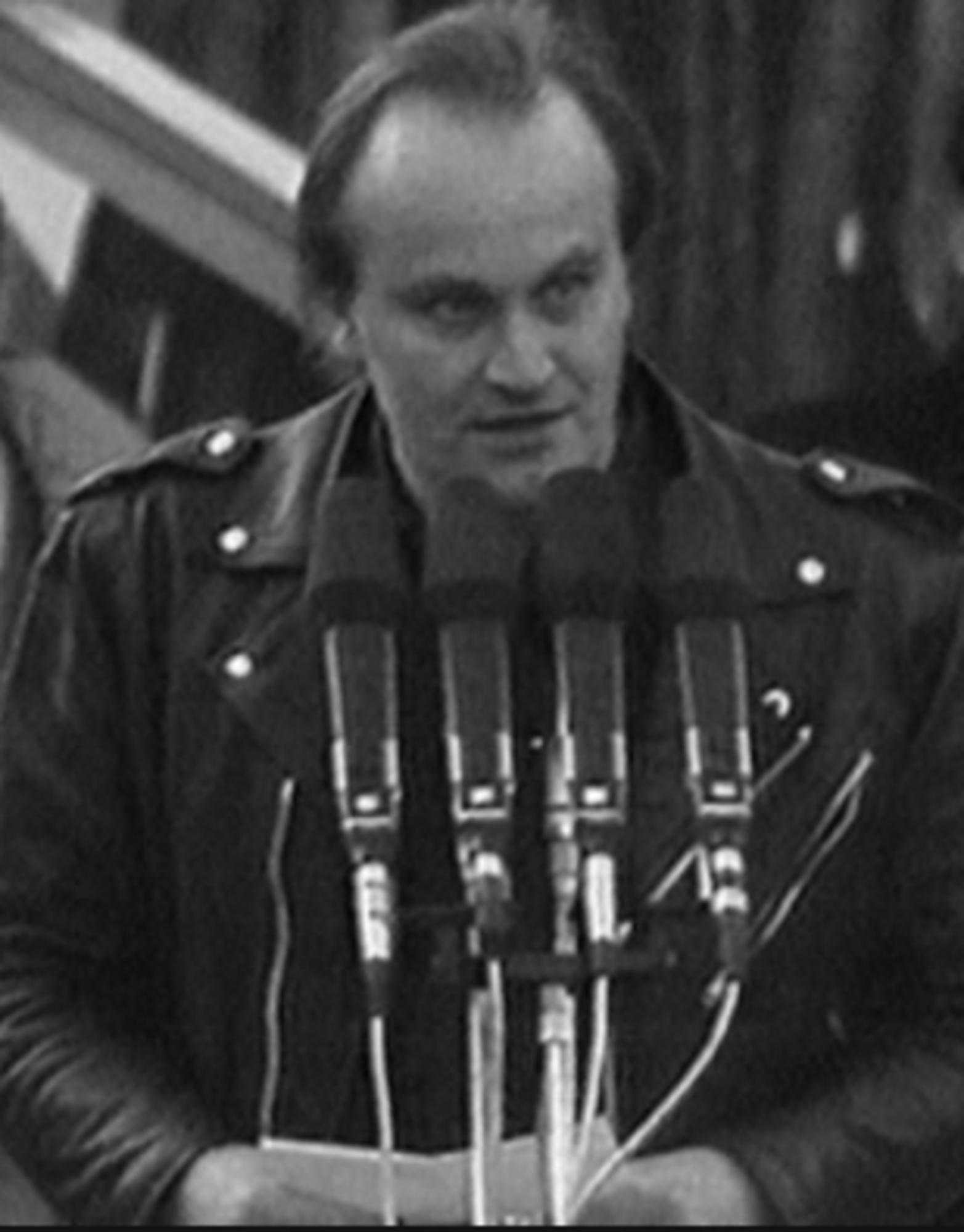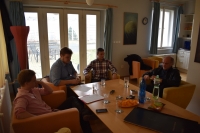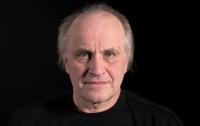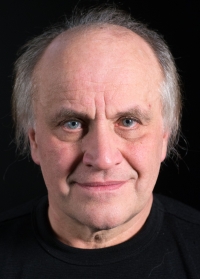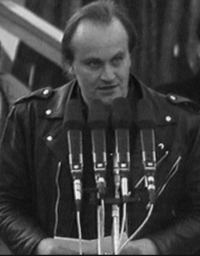“And so we arrived. The Soviets hadn’t been there, yet. According to the journalist Vladislav Kvasnička we found ourselves straight next to a refugee camp which is still in operation there. Bělá pod Bezdězem is known for it and indeed, it is located just next to it. We arrived to the bunker marked by Kvasnička. Our buses had stopped and for some time, we waited for the Soviets. After a while they arrived but without their general Eduard Vorobjov, which was another suspicious moment. They explained to me that since I was so stubborn they had all arrived. But that it was all for nothing because a mere look at the building – a typical military bunker – revealed that there could not be a storage of nuclear weapons inside. The argument was completely messed up. I saw a bunker with steel door big enough for a truck to drive in – how did that signal that it wasn’t what we were looking for? To me, it meant we might have been right on track. ‘I don’t know, whatever…’ The Soviets moved aside, stood there and stared at me. There were plenty of them, maybe twenty or thirty, a weird feeling… Similarly, the Czechoslovak soldiers have also become passively resistant: ‘Well, go in, then.’ I walked towards the door and couldn’t open it. This is a good story – and I call it crystal lie. Something you encounter rarely – a crystal clear lie. Every word their uttered was proving them guilty but still, they insisted: ‘There’s nothing in there.’ The door was locked with a padlock. I told them: ‘There is a padlock here.’ – ‘Well, you see. And how should we open it?’ – ‘Well, easily! Just have a soldier hit it with a hammer.’ – ‘Excuse us, this is not our lock…,’ they began to equivocate. Just a small padlock, really. ‘Now, get some pliers.’ A while later some private ran in, saying: ‘General, I can’t find the pliers.’ – ‘Oh, so, no pliers. Get a hammer then.’ They couldn’t find it either. They had a bus loaded full with military material but couldn’t find anything. So I said this was trouble. ‘Let’s go home, then.’ – ‘No way. We have to open this lock.’ – ‘You would damage the property…’ – ‘Does anyone mind me breaking the padlock? I will get you a new one.’ I went to see the caretaker in the camp nearby, he brought a hammer, hit the lock once and the lock flew off. I keep it fresh in my memory. I opened the door and it was dark inside. They said: ‘See, we told you!’ They were ready to use the darkness as a proof that there was nothing inside. Because it was dark inside! How could anything be hidden in the darkness? ‘Let’s light it up. Do you have your torches, lamps?’ No, they had forgotten all of it in Prague. Suddenly, the whole bus was useless because they didn’t even have lamps and when they did, they lacked batteries. It was a complete comedy. I said I would look for a switch. ‘We don’t recommend you to do that.’ – ‘Why so?’ – ‘Well, nobody knows what is inside. You claim there are some nuclear weapons – what if you got exposed to radiation?’ – ‘So, are they there?’ – ‘No, they’re not! But since you say that…’ So I went inside and reached the light switch just behind the door. Suddenly, the lights went on. It said: storage of nuclear weapons. They kept lying up until the very last moment.”
